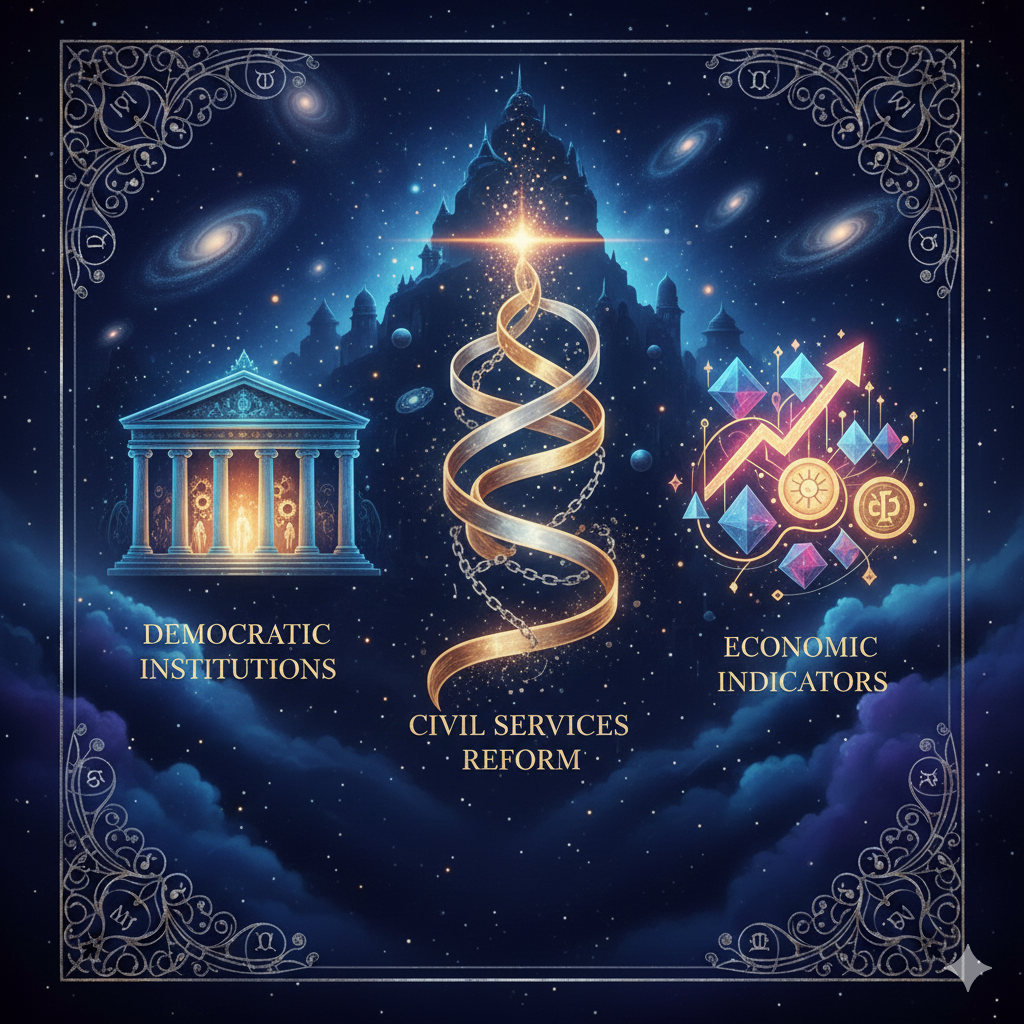Rabindranath Tagore: A Comprehensive Overview
Introduction
Rabindranath Tagore (1861–1941), known as “Gurudev,” was a towering figure in Indian literature, art, and culture. He was a polymath: a poet, novelist, dramatist, philosopher, painter, composer, and social reformer. Tagore became the first non-European to receive the Nobel Prize in Literature in 1913 for his collection of poems, Gitanjali. His contributions have left an indelible mark on Indian society and the global cultural landscape.
Early Life
- Born: May 7, 1861, in Jorasanko Thakurbari, Kolkata (then Calcutta), Bengal Presidency, British India.
- Parents:
- Father: Debendranath Tagore (a religious reformer and leader of the Brahmo Samaj).
- Mother: Sarada Devi.
- Education:
- Initially homeschooled and exposed to literature, music, and philosophy.
- Briefly studied in England at University College London but left without a degree.
Literary Contributions
- Poetry:
- Gitanjali (Song Offerings): Earned him the Nobel Prize.
- Other famous works: Manasi, Sonar Tori, Balaka.
- Prose and Novels:
- Gora: Explores themes of identity and social reform.
- Chokher Bali: A complex tale of love, betrayal, and human emotions.
- Ghare-Baire (The Home and the World): Addresses nationalism and humanism.
- Drama:
- Authored notable plays like Raktakarabi (Red Oleanders) and Dak Ghar (The Post Office).
- Authored notable plays like Raktakarabi (Red Oleanders) and Dak Ghar (The Post Office).
- Short Stories:
- Considered a pioneer of the Bengali short story genre.
- Famous stories: Kabuliwala, The Hungry Stones, The Homecoming.
- Music and Lyrics:
- Composed over 2,000 songs, collectively known as Rabindra Sangeet.
- His compositions “Jana Gana Mana” (India’s national anthem) and “Amar Shonar Bangla” (Bangladesh’s national anthem) reflect his profound legacy.
Artistic Contributions
- Began painting in his 60s, producing unique, abstract works.
- His art often reflected a blend of modernism and traditional Indian motifs.
Philosophy and Vision
- Advocated universal humanism and rejected narrow nationalism.
- Promoted education that combined the best of the East and the West.
- Founded Visva-Bharati University in Santiniketan in 1921, emphasizing holistic education.
Social Reforms
- Criticized caste discrimination and gender inequality.
- Advocated rural development and supported self-reliance.
- Opposed colonialism and renounced his British knighthood after the Jallianwala Bagh massacre in 1919.
Personal Life
- Married Mrinalini Devi in 1883; they had five children.
- Faced personal tragedies with the deaths of his wife, children, and father during his lifetime.
Awards and Honors
- Nobel Prize in Literature (1913): First Asian to win the award.
- Titles such as “Gurudev” and “Bard of Bengal” reflect his influence and reverence.
Death
- Died: August 7, 1941, in Kolkata.
- His legacy continues to inspire people worldwide through his writings, music, and educational philosophies.
Legacy
- His works transcend cultural and temporal boundaries, promoting universal values of love, freedom, and human dignity.
- Institutions, cultural movements, and governments continue to celebrate his life and contributions through festivals, scholarships, and memorials.
Tagore remains an enduring symbol of India’s intellectual and artistic renaissance




